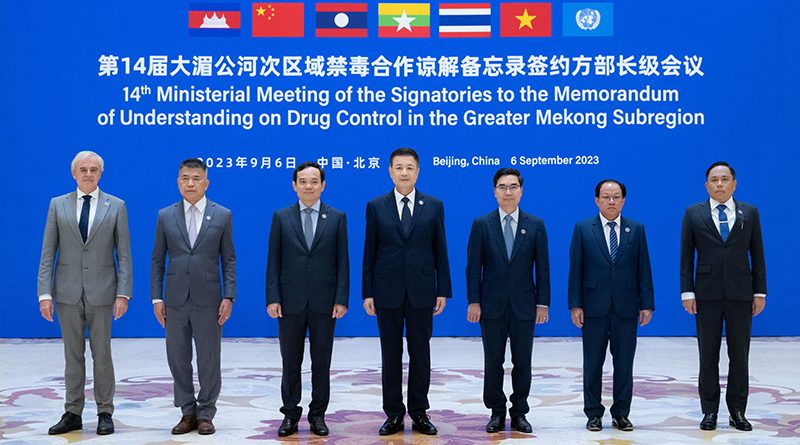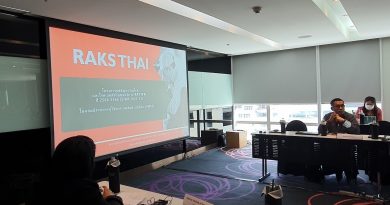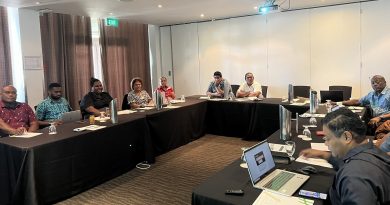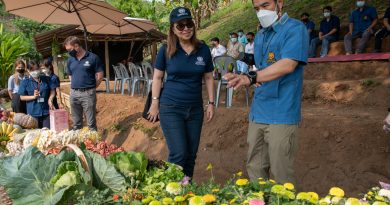Ministers from the Mekong region and UNODC agree to Beijing Declaration
Beijing (China), 6 September 2023 – Ministers and senior officials from Cambodia, China, Lao PDR, Myanmar, Thailand and Viet Nam, and the United Nations Office on Drugs and Crime (UNODC), gathered in Beijing for the 14th Ministerial Meeting of the Mekong Memorandum of Understanding on Drug Control (the Mekong MOU). This year’s Ministerial Meeting considered how drug production, trafficking and use have changed in the Mekong region over the past 30 years, with the vast expansion of synthetic drug supply and intensified organized crime activity top of the agendas.
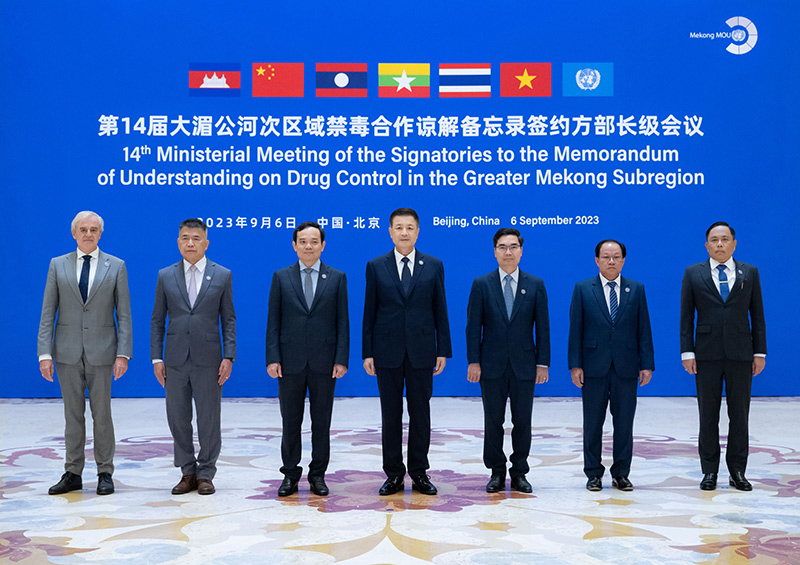
In 1993, at the 48th Session of the UN General Assembly held in New York, four countries, China, Lao PDR, Myanmar and Thailand, and the United Nations established a joint framework to respond to the growing challenge of illicit drugs, and primarily opium and heroin, in the Mekong region. The agreement expanded in 1995 to include Cambodia and Viet Nam, with a broader more comprehensive and coordinated response framework agreed.
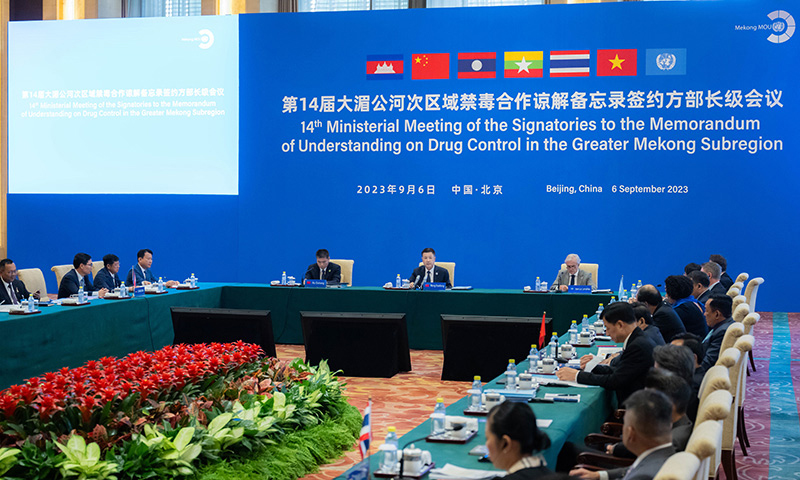
Opium and heroin have been recently superseded by synthetic drugs, in particular methamphetamine and recently ketamine. Methamphetamine seizures have grown substantially in East and Southeast Asia, from 6.6 tons in 2004 to nearly 151 tons last year, with regional supply heavily concentrated in the Mekong. Production of ketamine has also become a concern, as organized crime groups have diversified and established industrial-scale production in the Mekong, particularly in Shan State of Myanmar, and Cambodia. 20.9 tons of ketamine were seized in the Mekong alone in 2022.
As challenges related to drug production, trafficking and use in the Mekong have evolved, so has the framework of the Mekong MOU. “Today, thirty years later, the Mekong MOU remains central to drug control efforts, and the UN is committed to addressing the shared challenges of drug production, trafficking and use in the region. Unity is arguably more important today than ever before, as the landscape of the drug problem continues to grow more complex”, stated Jean-Luc Lemahieu, UNODC Director, Division for Policy Analysis and Public Affairs. “Illicit markets and production and use continue to change, and the Mekong MOU adapts. As challenging as the situation has become, the framework remains the primary vehicle for regional collaboration”, added Mr. Lemahieu.
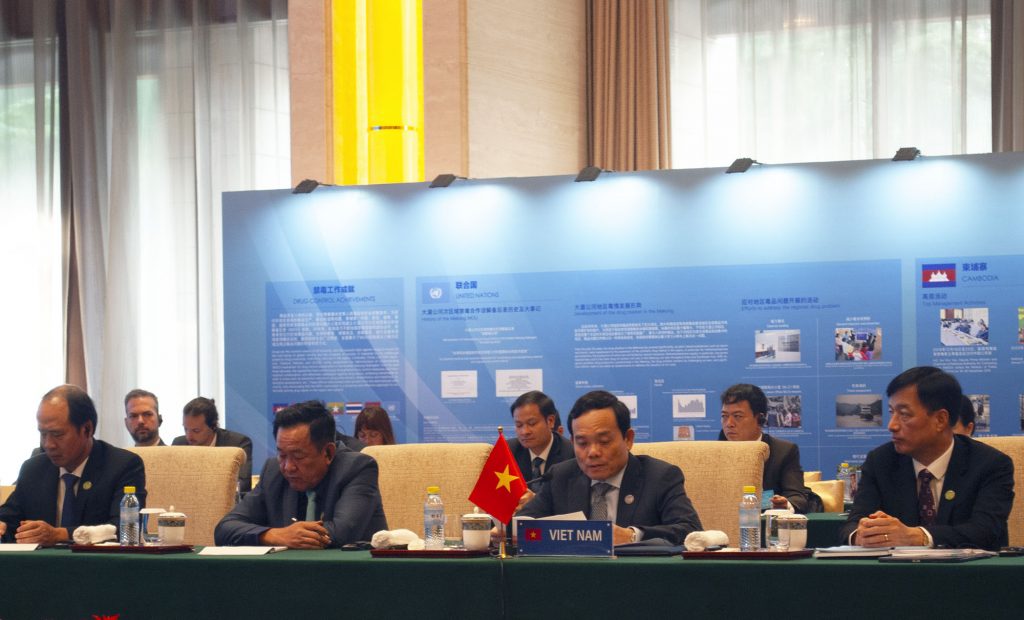
Over the past decade, 1,500 training courses have been run with almost 50,000 participants, strengthening the capacity of agencies at various levels, and over 300 operational missions have taken place to strengthen cross-border cooperation. The Mekong MOU has also helped broker cross-border operations of Mekong states that have contributed to the safety, security and well-being of the region.
“Since the establishment of the Mekong MOU 30 years ago, all parties have joined hands to deal with the regional drug problem. Our six countries and UNODC share a friendship and a commitment to go forward hand in hand”, stated Chinese State Councilor and Minister of Public Security Wang Xiaohong.
The Beijing Declaration, endorsed by Ministers, recognizes the extent of the drug challenges in the Mekong, supporting a regional action plan that outlines practical actions countries and the UN will take to address the drug problem.
Mekong Ministers acknowledged the need to work together to address the drug problem regardless of the complexity, with Mr. Lemahieu emphasizing that “the United Nations Office on Drugs and Crime is committed to supporting the signatories to the Mekong MOU. I am here today because UNODC believes in the health, well-being and security of the region. We will continue to support the region to manage the drug challenge, to consolidate progress, and overcome the challenges ahead.”

